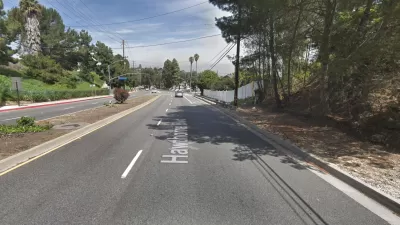A recent article by Sommer Mathis fills a void in supportive arguments for alternative forms of transportation: giving people more and better options not to drive, especially while drunk, is a massive public safety issue.
"There are tons of great reasons to choose walkable, transit-friendly neighborhoods and cities over places where driving is more or less required—the environmental impact, the cost, the nightmare of traffic jams—but for me, the number one reason is that I like being able to have a few drinks and never having to worry about driving," writes Sommer Mathis.
The historic development, and efficacy, of drunk driving policy, generational preferences in driving, and local enforcement in places like Arizona.
Mathis surveys the national scene, which includes the Mothers Against Drunk Driving policy platform, and finds that no one is making the case for alternative forms of transportation as an option—one that people will likely choose instead of driving drunk.
FULL STORY: What If the Best Way to End Drunk Driving Is to End Driving?

Study: Maui’s Plan to Convert Vacation Rentals to Long-Term Housing Could Cause Nearly $1 Billion Economic Loss
The plan would reduce visitor accommodation by 25,% resulting in 1,900 jobs lost.

North Texas Transit Leaders Tout Benefits of TOD for Growing Region
At a summit focused on transit-oriented development, policymakers discussed how North Texas’ expanded light rail system can serve as a tool for economic growth.

Why Should We Subsidize Public Transportation?
Many public transit agencies face financial stress due to rising costs, declining fare revenue, and declining subsidies. Transit advocates must provide a strong business case for increasing public transit funding.

How to Make US Trains Faster
Changes to boarding platforms and a switch to electric trains could improve U.S. passenger rail service without the added cost of high-speed rail.

Columbia’s Revitalized ‘Loop’ Is a Hub for Local Entrepreneurs
A focus on small businesses is helping a commercial corridor in Columbia, Missouri thrive.

Invasive Insect Threatens Minnesota’s Ash Forests
The Emerald Ash Borer is a rapidly spreading invasive pest threatening Minnesota’s ash trees, and homeowners are encouraged to plant diverse replacement species, avoid moving ash firewood, and monitor for signs of infestation.
Urban Design for Planners 1: Software Tools
This six-course series explores essential urban design concepts using open source software and equips planners with the tools they need to participate fully in the urban design process.
Planning for Universal Design
Learn the tools for implementing Universal Design in planning regulations.
Ascent Environmental
Borough of Carlisle
Institute for Housing and Urban Development Studies (IHS)
City of Grandview
Harvard GSD Executive Education
Toledo-Lucas County Plan Commissions
Salt Lake City
NYU Wagner Graduate School of Public Service




























